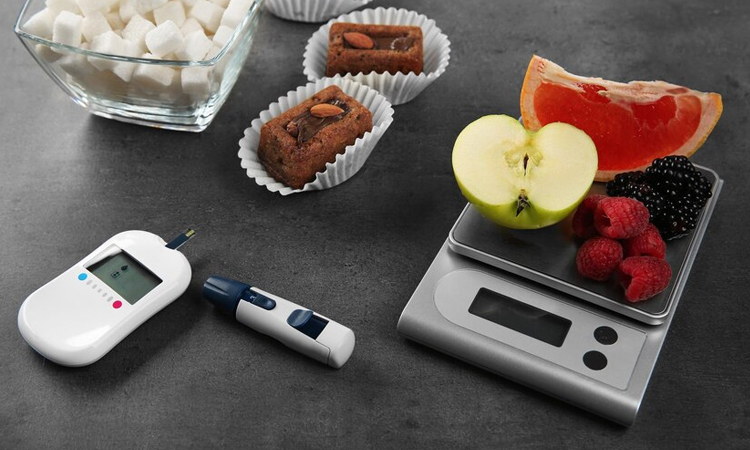
Maintaining stable blood sugar levels is crucial for overall health and well-being. Uncontrolled blood sugar can lead to serious health issues such as diabetes, obesity, and heart disease. Implementing effective sugar controller methods can help regulate blood sugar and prevent these complications. In this guide, we will explore the best strategies for blood sugar management to promote a healthier lifestyle.
Understanding Blood Sugar and Its Impact on Health
Blood sugar, or glucose, is the energy source of the body. It is obtained from the food consumed and carried to cells by blood. But an excessive level of blood sugar can cause health problems, as well as when the level of blood sugar is low.
A well-functioning sugar controller system in the body ensures that glucose is used efficiently without causing fluctuations. The pancreas plays a vital role in this process by producing insulin, a hormone that helps regulate blood sugar. However, when insulin function is impaired, blood sugar levels can rise, leading to insulin resistance and diabetes management.
The Role of Diet in Sugar Control
Diet is one of the most powerful tools for natural sugar control. The types of food we consume directly impact blood sugar levels. To maintain healthy glucose levels, consider the following dietary strategies:
Choose Complex Carbohydrates: Unlike refined carbs, complex carbs like whole grains, legumes, and vegetables provide sustained energy without causing blood sugar spikes.
Increase your fiber intake: Oats, flaxseeds, and other leafy greens delay the absorption of glucose and allow blood sugar to stabilize.
Use Lean Proteins: Food items that contain proteins, like chicken, fish, tofu, and eggs, release their blood sugar impact at a more sluggish rate than digestion.
Reduce Processed Sugars: Consuming foods and beverages that contain added sugars increase blood sugar levels rapidly. Decrease the intake of sugary drinks, candies, and baked products.
Stay Hydrated: Drinking plenty of water helps flush out excess sugar and supports metabolic processes.
Exercise as a Natural Sugar Controller
Physical activity is essential for blood sugar management. Regular exercise helps the body use insulin more effectively and lowers blood sugar levels. Here are some effective ways to incorporate exercise into your routine:
Aerobic Activities: Walking, running, and swimming improve insulin sensitivity and promote glucose metabolism.
Muscle Building: Resistance training, like weight lifting, builds muscle mass that increases glucose use.
Yoga and Stretching: They help reduce stress and improve the functioning of insulin.
Increased Physical Activity: Simply taking the stairs or walking after meals can make a difference in controlling blood sugar.
Sleep- The Key to Controlling Blood Sugar
Lack of sleep can disrupt insulin function and increase the risk of high blood sugar. Prioritizing quality sleep is an effective sugar controller method. Here are some tips to improve sleep:
Maintain a Consistent Sleep Schedule: Going to bed and waking up at the same time helps regulate blood sugar.
Create a Relaxing Bedtime Routine: Avoid screens and engage in calming activities like reading or meditation.
Limit Caffeine and Sugar Before Bed: These can disrupt the quality of sleep and can also cause spikes in glucose.
Optimize Your Sleep Environment: Ensure that the room is cool, dark, and quiet.
Manage Stress to Regulate Blood Glucose
Stress that persists for an extended period increases blood glucose due to the increased release of cortisol, a hormone that stimulates the production of glucose. Stress management is essential to maintaining healthy glucose levels. The following are stress-reducing tips:
Practice Mindfulness and Meditation: Deep breathing exercises and mindfulness techniques help decrease stress hormones.
Engage in Physical Activities: Exercise releases endorphins that balance out the effects of stress.
Stay Connected: Social support from friends and family can help improve emotional well-being.
Prioritize Self-Care: Time for hobbies and relaxation reduces stress and stabilizes blood sugar.
Natural Remedies for Sugar Control
Besides diet and lifestyle modification, several natural remedies can also support natural sugar control:
Cinnamon: Cinnamon has been reported to enhance the sensitivity of the body to insulin and reduce blood sugar.
Apple Cider Vinegar: Apple cider vinegar may be taken before meals, but diluted to minimize glucose spikes.
Greenback Seeds: Greenback seeds contain fiber and other compounds that increase insulin activity.
Aloe Vera: Aloe Vera juice has been associated with improving blood sugar.
The Importance of Routine Medical Checks
Monitoring the blood sugar level is also one of the significant sugar controllers strategies. Such check-ups allow the early stages of diabetes and help intervene with proper measures before they develop fully. Some important tests include:
Fasting Blood Sugar Test: Measures blood sugar after an overnight fast.
HbA1c Test: Measures an average of the blood sugar for the past three months.
Glucose Tolerance Test: A measure of the body’s response to a glucose-containing drink.
Insulin Sensitivity Test: Determines how effectively the body uses insulin.
Conclusion
Maintaining stable blood sugar is essential for long-term health and disease prevention. By implementing effective sugar controller methods such as a balanced diet, regular exercise, quality sleep, stress management, and natural remedies, individuals can achieve healthy glucose levels and reduce the risk of diabetes and other health complications.
It is a lifelong commitment to take control of blood sugar, but little changes can lead to significant improvements. With proper knowledge and a proactive approach toward managing blood sugar, one can lead a healthier and more balanced lifestyle.